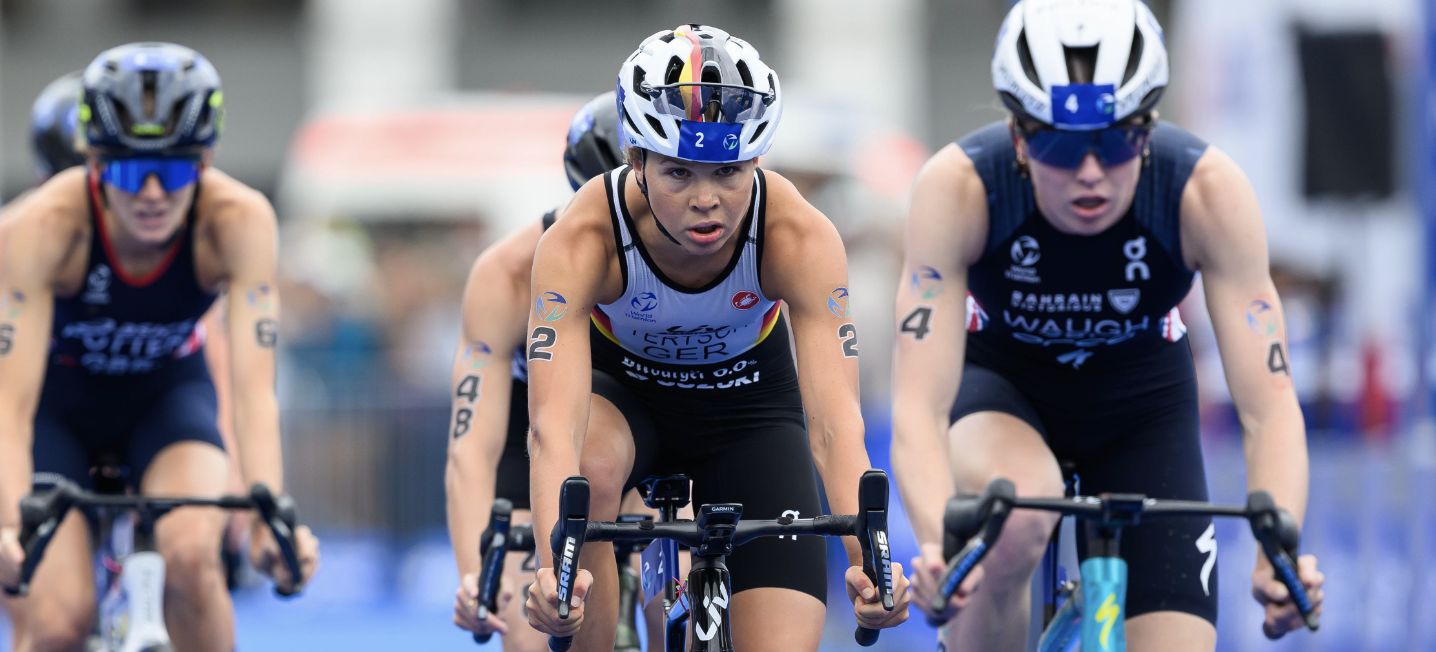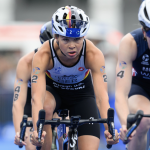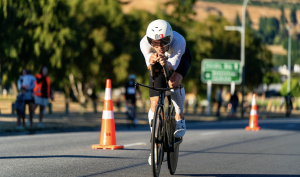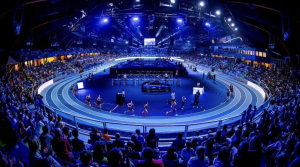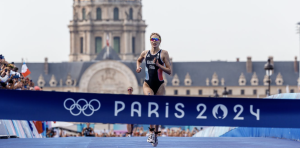Hamburg never disappoints and last weekend was no different. On the 23rd occasion the city hosted a top-level World Triathlon event, the event was a blur of speed and action. Indeed, a case could be made that it was faster than anything we have seen before.
As warning shots go, the victories of Cassandre Beaugrand (FRA) and Matthew Hauser (AUS) may have set alarms ringing for their rivals in the final run-in to the Paris Olympics. Beyond the victors, though, there was plenty to digest from the racing. Read on to find out five things we took away from the event.
Fastest race in WTCS history?
Hauser is increasingly becoming the negative split maestro. As was the case in Yokohama earlier this year, he took a steadier start to the run in Hamburg, building into his effort, before surging into the lead. His carefully judged efforts have established him as one of the strongest finishers this season and in Hamburg it saw him past the battling Vasco Vilaca (POR) and Pierre Le Corre (FRA).
Of the most significance, though, was Hauser’s split time. He clocked 13:40 for the 5km, obliterating the previous sprint distance Series record of 13:55. Moreover, the top-5 male finishers in Hamburg all dipped under the 14 minute mark. For context, this feat had only been achieved on three occasions in WTCS history. Mario Mola did it twice in Hamburg while Javier Gomez Noya did it once in Stockholm.
In addition, Vincent Luis (FRA) took 6th place with a split of 14:03. That was quicker than the 14:07 previously shared by Alex Yee and Hayden Wilde to lock out the old top-10 fastest ever splits. Altogether, then, we may have just seen the fastest WTCS race ever in terms of running.
Nor was the speed confined to the men’s race. Cassandre Beaugrand blasted to a time of 15.20 (while somehow looking like it was the most leisurely of jogs) which undercut the old Series record of 15:31. While Beaugrand was the only woman to defeat the old record, several other women inserted themselves into the top-10 of all time. Factors such as the updated run course (which was a tad shorter than 5km) and modern shoe technology likely came into the extraordinary times seen in Hamburg. Either way, the speed of the running was truly something to behold.
Home delights
Elsewhere it was a happy day for the German team. The home squad managed to put three women in the top-10 finishers with Lisa Tertsch claiming a second consecutive silver medal. Fresh off her win at the Tiszaujvaros World Cup, Annika Koch likewise featured towards the front on her way to 6th place while Marlene Gomez-Göggel took 10th place.
Furthermore, in the men’s race Henry Graf placed 15th and was the best performer of the many debutants in Hamburg. Graf has enjoyed a noteworthy start to the season with multiple wins at the Continental Cup level. He did not look over-awed in the slightest in Hamburg and he could be one to watch at the World U23 Championships later this year.
A tale of two bikes
Both silver medallists, Vilaca and Tertsch, used the bike section to their advantage in contrasting ways. In the case of Vilaca, the bike served as a display of his remarkable power. Having lost a bit of ground in the swim, he found himself in the chase pack out of T2. He almost single-handedly brought the chasers onto the rear wheels of the lead group and then, having sensed his chance, jumped across the gap himself. No one else could go with him and it would take a little longer (and much more effort) for his fellow chasers to join him. That unmatchable burst of power by Vilaca may have been decisive in setting him up for his eventual silver medal.
In the women’s race, Tertsch had an inverse plan. The German athlete had an excellent swim and found herself in the initial breakaway pack of four. Rather than push the pace, though, she was content to save her energy. This was on paper a sensible strategy as Tertsch had logged the fastest run splits in both Yokohama and Cagliari and so could trust her running speed. Throughout the remainder of the bike as the packs came together, Tertsch stuck in the leading five positions without taking any notable turns on the front. Those in the lead group may have had a few choice words for the German athlete but then it is not incumbent upon Tertsch to align her strategy to the race plans of others. Instead, she positioned herself perfectly, forced others to ride harder than they necessarily wanted to and then was the first woman into T2.
In the end, no one was going to touch Beaugrand on the run in Hamburg, such was her devastating speed, but Tertsch’s display was one of the smartest in the field and represented a tactical masterclass.
We’re getting the band back together!
Cast your eyes just outside the men’s podium and some very familiar faces will appear. Jelle Geens (BEL) finished 4th, Casper Stornes (NOR) took 5th place and Luis crossed in 6th. In doing so, all three former WTCS winners hit best results in over a year. WTCS fans of yesteryear will see little surprise in their presence in the top-6 but these stalwarts have not had the smoothest of paths lately.
Geens last medalled in the Series in Montreal last June but has not quite hit the same heights since. He has managed fatherhood with elite sport this year and his performance in Hamburg indicated that he is still capable of mixing it with the best. Meanwhile, Stornes and Luis made it onto the World Cup podium in Lievin earlier this year and each can come away from Hamburg satisfied.
Stornes was central in Norway qualifying a relay to the Olympic Games but alas won’t get to race in Paris. Nevertheless, Hamburg stands as his best WTCS result outside of his stunning 2018 win in Bermuda. For Luis, his 6th place is his highest finish since Abu Dhabi at the start of 2023. Considering he lost so much time to injury last year and is coming off the disappointment of his non-selection for the Olympic Games, his result is a big positive.
Hello Jeanne
Hamburg saw another 4th place finish in the Series for Jeanne Lehair (LUX). She crossed in 4th place in Montreal last year and in her last WTCS outing finished 5th in Cagliari. The signs are that a maiden WTCS medal is on the horizon as she continues to put herself among the fray at the business end of the race.
The real talking point of her race in Hamburg was that the Luxembourgish athlete was the second woman out of the water. More known for her run, that stands as the best swim of Lehair’s WTCS career. In her previous performances, she has shown she can run with the best and now she appears to be capable of swimming at the front too. With the Olympic Games being only two weeks away, it is a perfect time for Lehair to add another string to her bow and it signals that her training has gone swimmingly. For anyone looking for a dark horse to make the women’s podium in Paris, Lehair might just be the woman to watch.

